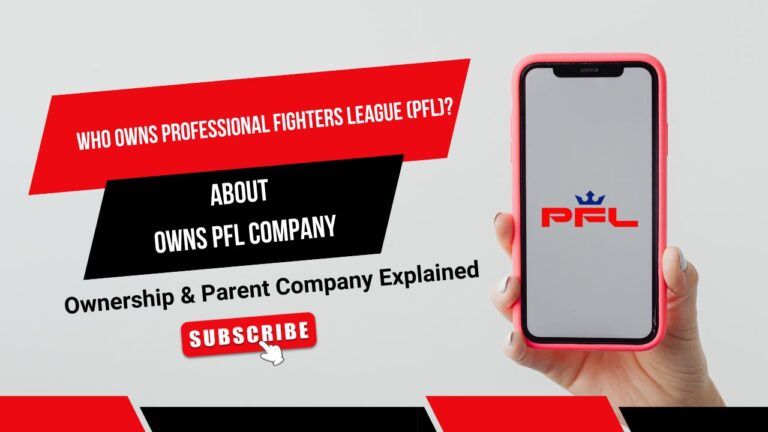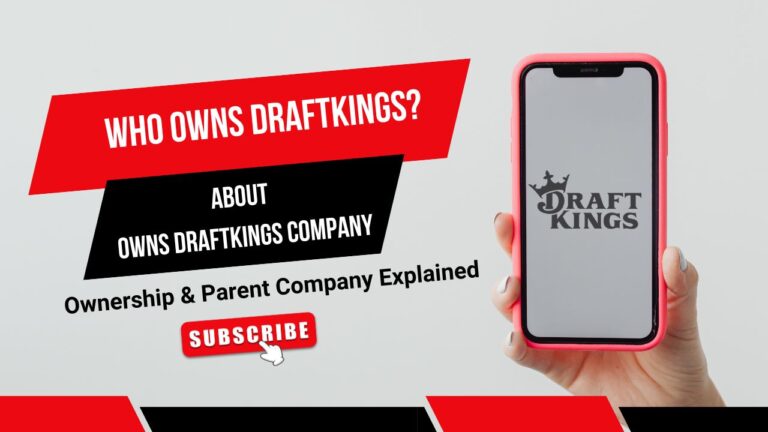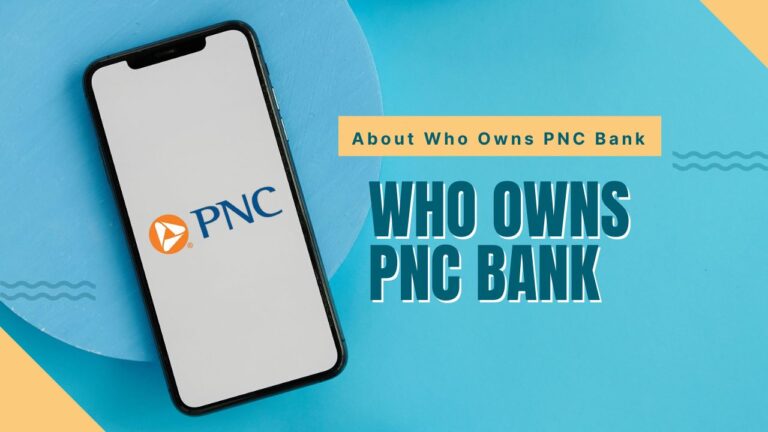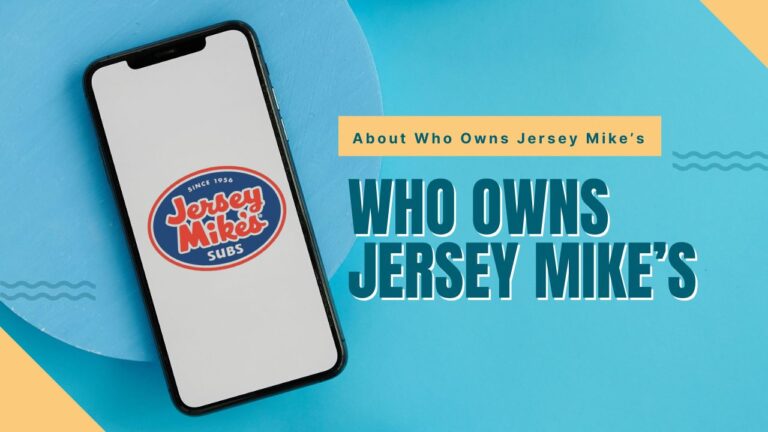Who Owns 7UP? Ownership & Parent Company Explained
Introduction
7UP is one of the most popular lemon-lime flavored soft drinks in the world, known for its refreshing taste and caffeine-free formula.
Since its introduction in 1929, the brand has undergone significant changes in ownership and distribution.
Many people assume that 7UP is owned by a single corporation, but in reality, its ownership structure is divided between different companies depending on the region.
While Keurig Dr Pepper (KDP) owns the brand in the United States, PepsiCo is responsible for its distribution and marketing in most international markets.
This split ownership is a result of historical mergers, acquisitions, and corporate restructuring, making 7UP a unique case in the global beverage industry.
Understanding the ownership history of 7UP requires looking at its early beginnings, key acquisitions, and how it became a part of two separate beverage giants.
The drink started as a small innovation in the soft drink market but quickly gained popularity. Over time, different corporations recognized its value and acquired it to strengthen their beverage portfolios.
From its initial creation to its present-day corporate structure, the history of 7UP reflects the ever-changing landscape of the soft drink industry.
This article explores who owns 7UP, how its ownership has evolved, and what its current shareholder structure looks like.
Who is 7UP’s Parent Company?
Current Ownership
Today, 7UP is owned by two separate companies, depending on the geographic region. In the United States, the brand is controlled by Keurig Dr Pepper (KDP), a leading beverage company that was formed through the 2018 merger of Dr Pepper Snapple Group and Keurig Green Mountain.
KDP manages several well-known beverage brands, including Dr Pepper, Canada Dry, A&W Root Beer, and Snapple.
Meanwhile, outside of the U.S., the rights to 7UP are owned by PepsiCo, which distributes and markets the soft drink under its vast global network.
This means that while American consumers associate 7UP with Dr Pepper, international consumers view it as a Pepsi product.
This unique ownership division can sometimes cause confusion among consumers. For instance, someone traveling from the U.S. to Europe might notice slight differences in branding, taste, or packaging, as the formula and marketing strategies are determined by different companies.
The reason for this split traces back to corporate deals and restructuring that took place in the 1980s and 1990s.
While PepsiCo secured the rights to 7UP in international markets, Keurig Dr Pepper retained ownership within the U.S. market, maintaining a strong foothold in the North American beverage industry.
Regional Differences in Ownership
The split ownership of 7UP is one of the most unique arrangements in the soft drink industry.
In countries like Canada, Mexico, and the United Kingdom, 7UP is marketed and distributed by PepsiCo, benefiting from the company’s extensive bottling and retail network.
This allows PepsiCo to position 7UP alongside its other flagship beverages like Pepsi, Mountain Dew, and Mirinda, giving it a strong presence in convenience stores, restaurants, and supermarkets.
However, in the U.S., 7UP competes directly with PepsiCo’s Sierra Mist (now rebranded as Starry), creating an interesting dynamic where the two companies are competitors in one market but partners in another.
These regional differences extend beyond just branding and distribution. The formulation of 7UP varies slightly between different regions due to local regulations and consumer preferences.
In some countries, 7UP may contain real sugar instead of high-fructose corn syrup, and certain marketing campaigns are tailored to appeal to specific cultural trends.
Despite these differences, 7UP maintains a consistent image as a crisp, refreshing, and caffeine-free lemon-lime soda, enjoyed by millions of consumers worldwide.
7UP’s Ownership History
Early Beginnings and Founding
7UP was first introduced in 1929 by Charles Leiper Grigg, an American entrepreneur and inventor.
The drink was originally named Bib-Label Lithiated Lemon-Lime Soda and was formulated as a refreshing carbonated beverage with a mild medicinal benefit.
At the time, lithium citrate, a mood-stabilizing compound, was included in the formula, which was believed to help with stress and depression.
The drink was later rebranded as 7UP, with the new name contributing to its broader appeal and marketability.
During its early years, 7UP quickly gained popularity, particularly during the Great Depression and World War II.
The drink was seen as a premium soda with a unique taste, making it a favorite among consumers. By the 1950s and 1960s, 7UP was a major competitor to Coca-Cola and Pepsi, establishing itself as the leading lemon-lime soft drink.
The company underwent several changes in ownership, with major corporations recognizing its potential and acquiring it to expand their beverage portfolios.
Key Mergers and Acquisitions
The first significant shift in 7UP’s ownership came in 1978 when Philip Morris, a major tobacco and consumer goods company, acquired the brand.
However, the company later decided to sell 7UP, splitting its U.S. and international operations into separate entities.
In 1986, the U.S. division of 7UP was sold to Hicks & Haas, a private investment firm, which later merged 7UP with Dr Pepper in 1988 to create Dr Pepper/Seven Up, Inc..
The late 1990s and early 2000s saw further consolidation in the soft drink industry.
In 1995, Cadbury Schweppes, a British multinational company, acquired Dr Pepper/Seven Up, Inc., bringing 7UP under its global beverage portfolio.
Then, in 2008, Cadbury spun off its beverage division, creating Dr Pepper Snapple Group, which became the independent owner of 7UP in the U.S. Finally, in 2018, Dr Pepper Snapple Group merged with Keurig Green Mountain to form Keurig Dr Pepper (KDP), which remains the U.S. owner of 7UP today.
7UP’s Shareholder Structure
Corporate Structure of Keurig Dr Pepper
Keurig Dr Pepper, the current owner of 7UP in the U.S., is a publicly traded company listed on NASDAQ under the ticker symbol KDP.
The company is structured as a diversified beverage conglomerate, with a wide range of brands spanning coffee, soft drinks, and ready-to-drink beverages.
Keurig Dr Pepper operates as a key player in the North American market, competing with industry giants like Coca-Cola and PepsiCo.
The international owner of 7UP, PepsiCo, is also a publicly traded company, listed on NASDAQ under the ticker symbol PEP.
As one of the world’s largest food and beverage companies, PepsiCo controls a vast portfolio of products, including Pepsi, Lay’s, Tropicana, Gatorade, and Quaker Foods.
Through its extensive bottling network, PepsiCo ensures that 7UP remains a prominent player in global soft drink markets.
Major Stakeholders and Investors
The largest shareholder of Keurig Dr Pepper is JAB Holding Company, a private investment firm with a majority stake in the company.
Other key stakeholders include institutional investors such as Vanguard Group, BlackRock, and State Street Corporation, which hold significant shares in KDP.
Similarly, PepsiCo’s shareholder structure includes major institutional investors like Berkshire Hathaway, Vanguard, and BlackRock, which hold a large portion of the company’s stock.
Both Keurig Dr Pepper and PepsiCo operate as publicly traded entities, meaning individual investors can purchase shares and hold a stake in the companies that own 7UP.
Conclusion
7UP’s ownership structure is unique in the soft drink industry, with Keurig Dr Pepper managing the brand in the U.S. while PepsiCo controls its international distribution.
Over the years, the brand has changed hands multiple times due to mergers and acquisitions, reflecting the highly competitive nature of the beverage sector.
Despite these changes, 7UP has remained a leading lemon-lime soda brand with strong consumer recognition worldwide.
Frequently Asked Questions (FAQs) About 7UP
1. Who currently owns 7UP?
Answer: 7UP is owned by Keurig Dr Pepper (KDP) in the United States and by PepsiCo in international markets. This split ownership structure resulted from corporate acquisitions and restructuring.
2. Why is 7UP owned by different companies in different countries?
Answer: The division happened due to separate acquisitions in the 1980s. PepsiCo acquired the international rights, while Keurig Dr Pepper retained control over the U.S. market.
3. Is 7UP a Pepsi or Coca-Cola product?
Answer: 7UP is not owned by either company in the U.S. but is part of PepsiCo’s beverage lineup in many international markets. In the U.S., it competes with Pepsi’s Starry and Coca-Cola’s Sprite.
4. What was 7UP originally called?
Answer: When introduced in 1929, 7UP was called Bib-Label Lithiated Lemon-Lime Soda because it contained lithium citrate, a mood-stabilizing ingredient. The name was later shortened to 7UP.
5. Why is 7UP caffeine-free?
Answer: 7UP was formulated to be a clear, refreshing alternative to colas, making it a naturally caffeine-free soda. It remains popular among those who prefer non-caffeinated soft drinks.
6. Is 7UP healthier than other sodas?
Answer: While 7UP doesn’t contain caffeine, it still has sugar and artificial sweeteners in some versions. Compared to colas, it lacks caramel coloring and phosphoric acid, but it’s still a sugary soft drink.
7. Who are the major shareholders of Keurig Dr Pepper?
Answer: The largest shareholder of Keurig Dr Pepper is JAB Holding Company, while institutional investors like Vanguard, BlackRock, and State Street Corporation also own significant shares.
8. Does 7UP taste the same worldwide?
Answer: Not exactly. Some countries use real sugar instead of high-fructose corn syrup, and minor differences in formulation exist due to regional preferences and regulations.
9. Is 7UP still made with lithium?
Answer: No, lithium was removed from 7UP in 1948 after concerns over its effects on health. Today, 7UP is just a carbonated lemon-lime soda without any medicinal ingredients.
10. What are the main competitors of 7UP?
Answer: 7UP’s biggest rivals are Sprite (Coca-Cola) and Starry (PepsiCo) in the lemon-lime soda market. Other competitors include private-label sodas and regional brands.



